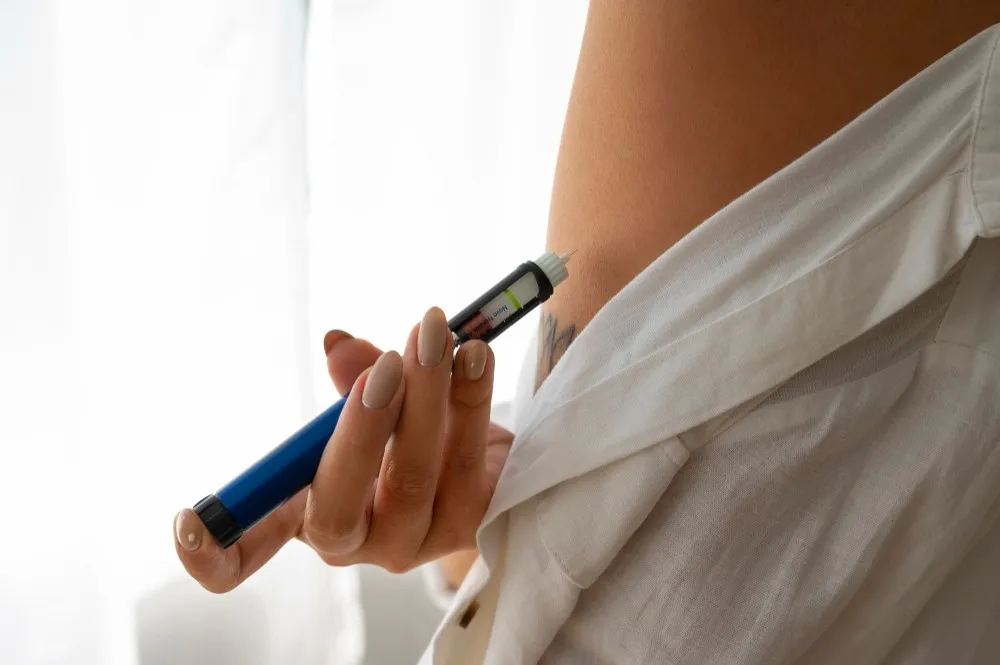COVID-19 has taken over the entire planet and civilization is fighting for survival. The number of those infected is constantly rising, and unfortunately, so are those who have succumbed to the disease. Researchers have established that although Coronavirus is dangerous for every person out there, there are high-risk groups that are at a higher risk when it comes to COVID-19. One such group is people diagnosed with Diabetes. Diabetes and Coronavirus is a dangerous combination and doctors around the world have explained why.
COVID-19 & The High-Risk Group
The COVID-19 high-risk group includes people above 60 years of age, pregnant women, and people with pre-existing medical conditions. The pre-existing medical conditions, especially when not controlled, include -- Chronic Lung Disease
- Chronic Kidney Disease undergoing dialysis
- Asthma (moderate to severe)
- Heart Condition
- Immunocompromised (conditions that can make an individual immunocompromised include cancer treatments, bone marrow/organ transplantation, poorly controlled HIV/AIDS, immune deficiency, smoking, and prolonged usage of immune-weakening medication)
- Obesity (severe; BMI that is 40 and above)
- Diabetes
- Liver Disease
Diabetes And Coronavirus - Things You Need To Know
- American Diabetes Association has claimed that COVID-19 is more serious and riskier for people diagnosed with Diabetes; both, Type 1 and Type 2 Diabetes are at an increased risk from the infection.
- The incubation period for Coronavirus is 2-14 days. This means that it takes anywhere between 2-14 days after exposure to the virus, for the infection to set in and start showcasing symptoms. People with diabetes need to take all the necessary measures during this period.
- Primary symptoms of COVID-19 are cough, fever, nasal congestion, runny nose, shortness of breath, sore throat, and body ache.
- The risk of complications and fatality from COVID-19 is much higher among Diabetics.
Diabetes And Coronavirus - What Happens On Exposure To Coronavirus?
Many patients who contract the Coronavirus infection have a body-wide response called Sepsis. For the treatment of Sepsis, management of the body's electrolyte and fluid levels is required. Complications associated with Diabetes, like DKA, actually result in loss of electrolytes, making it much harder for doctors to treat or control Sepsis.Diabetes And Coronavirus - Why is the Risk Higher Among Diabetics?
The likeliness of catching the Coronavirus infection among people with Type 1 and Type 2 Diabetes is not any higher than others, however, they are definitely at risk of ending up with worse complications and a high severity case of COVID-19 on exposure to the virus.There are two reasons for this -
Hyperglycemia - Hyperglycemia is a condition where a high level of sugar or glucose is present in the blood, leading to a dysfunctional immune response. This dysfunctional immunity response makes people with diabetes more prone to contracting infections. Damaged Circulatory System - Some diabetes patients have a damaged circulatory system, which leads to a slowdown in the healing process within the body after catching an infection. This makes the body highly vulnerable and susceptible to further complications.Diabetes And Coronavirus - Precautions
1. Follow Your Diabetes Medication Routine
Continue taking your diabetes pills and insulin as usual, and do not implement any kind of change in the routine or the medication without your doctor's recommendation.2. Stock up on Food, Insulin & Medicines
Order all your medications and insulin and stock up. This is important to avoid unnecessary trips to the pharmacy. Also, maintain a stock of healthy foods and simple carbs. This will be useful in case there is a dip in your blood sugar level.3. Monitor your Blood Sugar
Test and chart your blood sugar level every 4 hours.4. Online tele/ video consultation with your doctor
Get an online tele/ video consultation with your doctor for any questions or medical concerns that you may have.5. Eat Healthy & Stay Hydrated
Follow a healthy meal plan and drink lots of water.6. Have an Emergency Contact
Have a designated contact who can help you out in case you need some essentials, or when you need to reach out to a doctor in an emergency. Alternatively, you can also have essentials like food or medicines delivered to your doorstep.7. Practice Social Distancing
Observe social distancing and leave the safety of your house only when necessary. Maintain a distance of at least six feet from people who live outside your household, and from those who are sick within your household.8. Practice Good Hygiene
Wash your hands frequently using soap and water, and carry a sanitizer in case you move out of the house. Also, avoid touching possibly infected surfaces around you. Coronavirus does not only spread through respiratory droplets but also through surfaces that the virus may have attached to. Also, Read About: Mental Health During Coronavirus & Government InitiativeDiabetes And Coronavirus - What To Do When You Fall Sick?
Managing the blood sugar level when sick, can be challenging for a person who has diabetes. This is why if a Diabetes patient falls sick during this pandemic, a 'Sick-Day Protocol' must be followed.- Monitor and chart the blood sugar levels frequently
- Chart your temperature, medications, and weight
- Continue with the regular medication and insulin
- Try to follow a normal diet
Diabetes & COVID-19 - When Should You Go To a Hospital?
If you have Diabetes, you must go to the nearest hospital immediately when you experience any of the following symptoms -- Respiratory issues or trouble breathing
- Unusual weight loss during a sick period
- Unable to follow a normal diet and cannot keep your food down for more than 24 hours
- The blood sugar level is less than 60mg/dl
- Vomiting or severe case of Diarrhea for more than 6 hours
- Fever of more than 101 degrees for more than 24 hours
- Unusually sleepy, disoriented, or confused

Reviewed by







